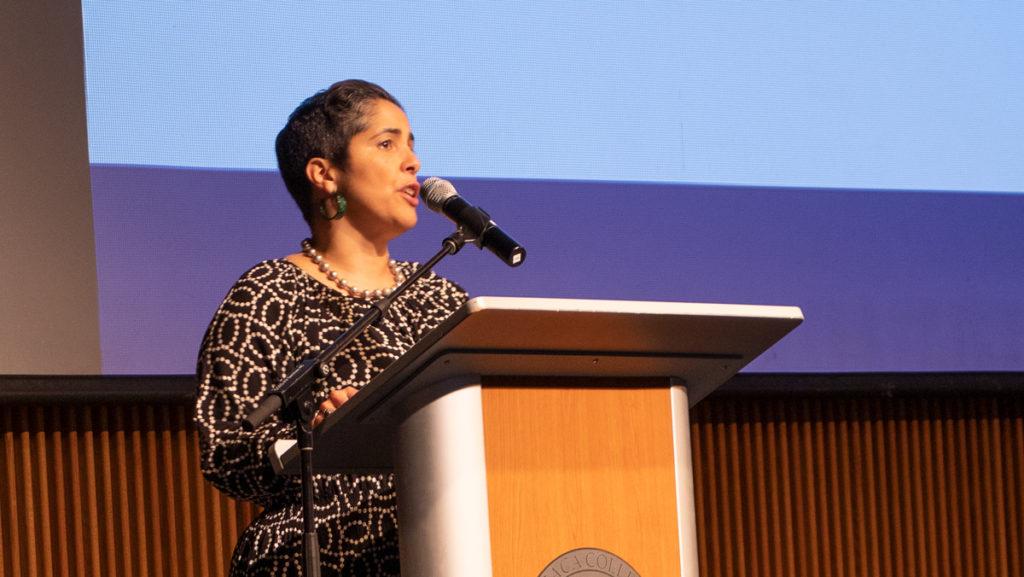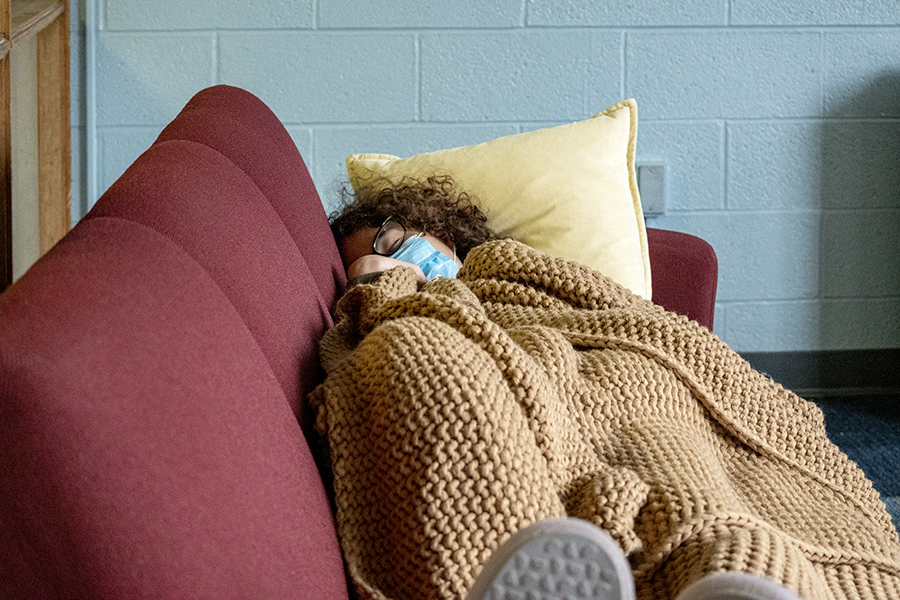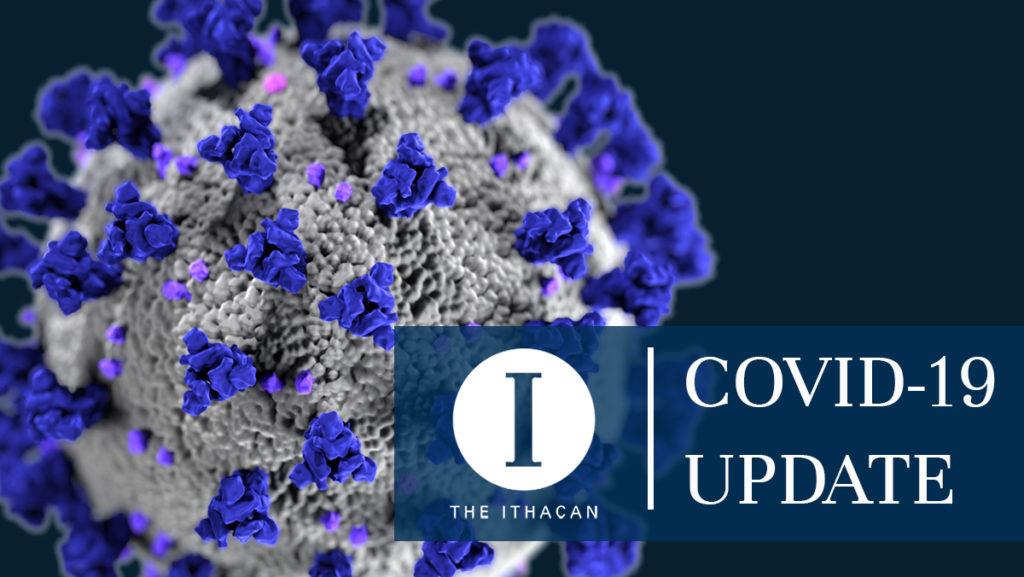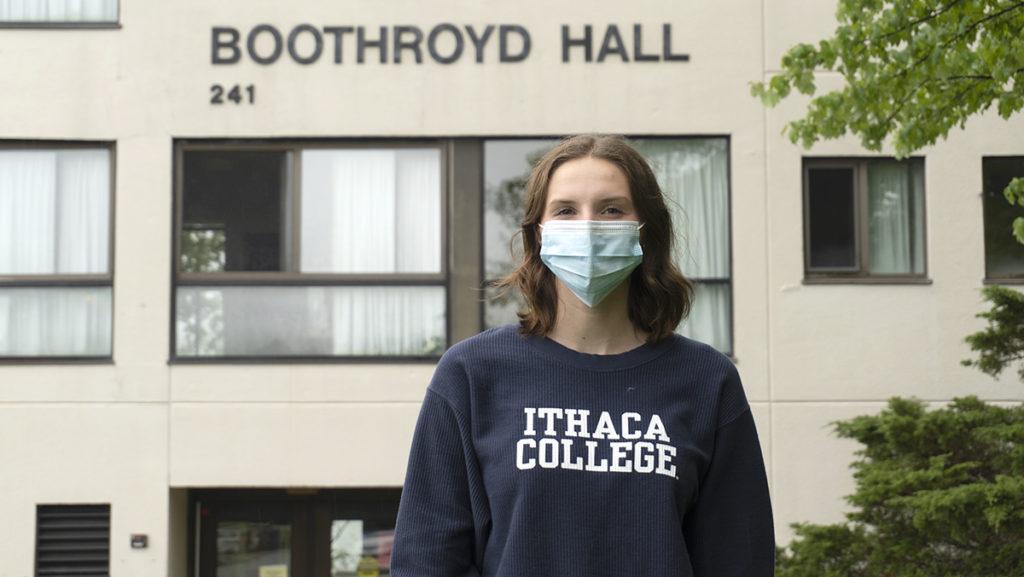The Ithaca College Return to Campus Task Force provided information about campus life during the 2020–21 academic year in light of the COVID-19 pandemic at the All-Student Gathering on July 23.
Members of the task force spoke about changes that will be made to academics, dining, financial aid and move-in. Rosanna Ferro, vice president for Student Affairs and Campus Life, said approximately 900 students and their families attended the meeting.
President Shirley M. Collado said there is no guarantee that the college will open for in-person instruction.
“None of us, myself included, should take for granted or assume that everything is going to be okay and that we actually are going to open,” Collado said. “I am very concerned but also very thoughtful about the next two weeks; the next few weeks we’re going to be looking at things very closely.”
Collado said she has received messages from students from states on New York’s travel advisory list who are dissatisfied with the college’s decision to prohibit them from returning to campus. She said the college has been listening to the students’ concerns and is working with the New York state government to find the best way for the students to receive an education. Collado also said the students have to understand that the Ithaca community is concerned about students who attend Ithaca College, Cornell University and Tompkins Cortland Community College all returning to Ithaca at around the same time.
“College this year is not going to look the same, and so we’ve had to make some serious investments this year, for you, and for our community and all of us together,” Collado said.
La Jerne Cornish, provost and senior vice president for academic affairs, said Fall 2020 classes will be run in two different ways, hybrid and remote. Hybrid classes will be taught both in-person and virtual, and remote classes will be taught completely remotely.
Cornish said social distancing and classroom capacity rules have placed constraints on in-person classes.
“If you ever had a class in Textor 101, you would know that Textor holds about 120 students,” she said. “But due to social distancing and classroom capacity, and having six feet between students, Textor will be reduced to a capacity of 24 from 120.”
Cornish said that this means classes may have to be run on an ABC day schedule, in which students are assigned an A day, B day, or C day. Depending on their assigned day, students will either attend class in person or attend virtually.
Students can choose to stay home and attend classes remotely. However, some classes are hands-on and need to be taught in person, like physical therapy classes or production classes in the Roy H. Park School of Communications, Cornish said. She said the college is deciding which way each class will be taught and will notify students about how their classes will be run.
Dave Prunty, executive director of auxiliary services, said that all self-serve items in dining halls will be removed and that all meals will be served to go.
Prunty said everyone in dining areas will be required to wear masks, and dining employees will wear the required personal protective equipment and go through daily health screenings. He said room capacity requirements will decrease seating locations in dining halls, and the college is looking for places for additional seating.
In order to decrease traffic in dining halls, the Emerson Suites will be used as a location for students to receive meals, and another grab-and-go meal swipe location will be in the Campus Center lobby, Prunty said. He also said that students will be able to use meal swipes in certain retail locations, including in the Towers Marketplace for Late Night service, and that Grubhub has been expanded to the Ithaca Bakery and IC Square.
Laurie Koehler, vice president for marketing and enrollment strategy, said the college will keep financial aid packages the same even though room and board costs are decreasing. She said that some aid packages may have to be reduced if the financial aid exceeds the cost of attendance.
Koehler said students were sent a questionnaire that asks about their current plans for the upcoming academic year. In the survey, if students indicate that they will not return to campus, their housing will be given up.
Marsha Dawson, director of the Office of Residential Life and the Office of Judicial Affairs, said students who return in Spring 2021 will be able to inform the college of their roommate and housing preferences and will be placed in housing that best fulfills their preferences.
Dean of Students Bonnie Prunty said all faculty, staff and students must sign a community agreement that outlines campus behavioral expectations, and students who live on campus will need to sign an addendum to their housing agreement, which covers changes to housing rules as well.
She said that all students must sign up for COVID-19 testing. There may be early testing dates in the beginning of August for students living off campus whose leases start in August.
Dawson said the college is allowing students to live in double rooms with one roommate but is not allowing triple rooms.
Students are asked to arrive to campus at different times than their roommates. One roommate will return and get tested and reside in the room, and the other roommate will get tested and reside in a hotel until their test results return, Dawson said.
“This will allow the college to test both roommates and ensure that you both test negative before sharing a room together,” she said.
Prunty said the college will cover the costs of the hotel and will provide transportation for students to move back to campus. She said the college will have the results of the tests the morning after the test is administered.
Dawson said that during move-in, guests will not be allowed to enter the residence halls or the Athletics and Events Center (A&E Center), where check-in will take place.
She said that returning students will first go to the A&E Center to check in, get tested for COVID-19 and receive a residential check-in packet. Students will then move into their residence hall without their guests entering the building, Dawson said.
In response to a pre-submitted question that asked what the college will do if a student tests positive for COVID-19, Christina Moylan, associate dean of the School of Health Sciences and Human Performance, said students will be tested for COVID-19 throughout the semester. She said that if a student tests positive, they will quarantine in Emerson Hall, which has been converted from a residential dorm into a quarantine space for students, a hotel or at home, as long as the Tompkins County Health Department agrees with the decision. However, if returning home requires a student to take public transport, they will not be allowed to return home.
In response to a pre-submitted question about student organizations, Bonnie Prunty said clubs will be allowed to hold meetings and gatherings, but there will be a focus on virtual programming.











